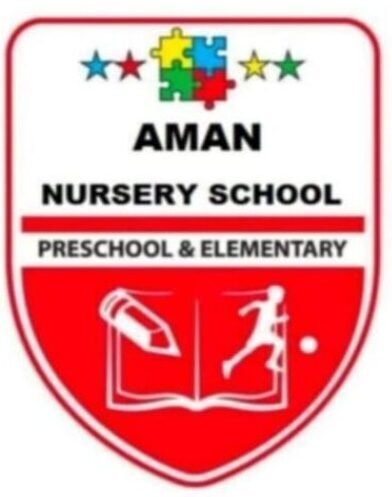Our Curriculum
An Upper Kindergarten (UKG) curriculum is designed for children aged 5-6 years and focuses on preparing them for primary school. It builds on the foundational skills learned in lower kindergarten, with more emphasis on academic readiness, social skills, and independence. Here’s a breakdown of a comprehensive UKG curriculum:
1. Language and Literacy Development
- Skills Focus: Reading readiness, phonics, sight words, sentence formation, and writing skills.
- Activities:
- Phonics: Blending sounds (e.g., “c-a-t” makes “cat”), recognizing long and short vowel sounds.
- Reading: Recognizing and reading simple words, sentences, and stories. Introducing sight words like “the,” “and,” and “is.”
- Writing: Copying and writing short sentences, learning punctuation (capital letters, full stops), and writing their own name and simple words.
- Vocabulary: Expanding vocabulary through storytelling, picture reading, and question-answer sessions.
- Rhymes and Poems: Learning new rhymes to enhance language rhythm and memory.
2. Mathematics
- Skills Focus: Number sense, basic addition and subtraction, shapes, measurements, and patterns.
- Activities:
- Counting: Counting up to 50 or 100, writing numbers up to 50, and skip counting by 2s, 5s, and 10s.
- Addition and Subtraction: Solving simple addition and subtraction problems using objects, fingers, or visual aids (e.g., 2+3=5, 5-2=3).
- Shapes and Patterns: Recognizing and naming more complex shapes (e.g., hexagon, oval) and continuing patterns (e.g., ABAB, ABCABC).
- Measurement: Introducing basic concepts of length, weight, and volume (e.g., tall/short, heavy/light).
- Number Games: Engaging in games that involve number recognition, comparison (greater than/less than), and solving puzzles.
3. Environmental Science
- Skills Focus: Understanding the world, basic natural science, plants, animals, and environmental awareness.
- Activities:
- Nature Exploration: Learning about the parts of a plant, the life cycle of animals (e.g., butterfly, frog), and different types of weather.
- Experiments: Simple science experiments like growing plants from seeds, observing objects that float or sink, and exploring the water cycle.
- Animals and Habitats: Learning about domestic and wild animals, their habitats, and sounds they make.
- Environmental Awareness: Teaching the importance of taking care of the environment (e.g., recycling, saving water, planting trees).
4. Social and Emotional Development
- Skills Focus: Teamwork, empathy, conflict resolution, following rules, and understanding feelings.
- Activities:
- Group Activities: Working in teams to complete tasks or solve puzzles, encouraging communication and cooperation.
- Role-Playing: Using role-play to teach children about various roles in society (e.g., doctor, teacher) and practice good behavior.
- Emotion Recognition: Discussing different emotions and how to handle them, using stories or puppets to express feelings.
5. Physical Development
- Skills Focus: Fine motor skills (writing, drawing), gross motor skills (running, jumping), and coordination.
- Activities:
- Fine Motor Skills: Practicing writing letters, using scissors for crafts, coloring within lines, and using tools like tweezers for picking up small objects.
- Gross Motor Skills: Outdoor play (running, hopping, skipping), balancing games, and sports (e.g., ball games).
- Hand-Eye Coordination: Playing games that require catching, throwing, or aiming at targets.
6. Creative Arts
- Skills Focus: Encouraging creativity, artistic expression, and imagination through art, music, and drama.
- Activities:
- Art Projects: Drawing, painting, cutting and pasting, making crafts with different materials (e.g., clay, paper, yarn).
- Music and Dance: Singing songs, playing musical instruments, learning rhythm, and participating in dance activities.
- Drama: Acting out stories, engaging in pretend play, and dressing up to stimulate imagination and creativity.
7. Cognitive and Problem-Solving Skills
- Skills Focus: Critical thinking, reasoning, memory, and decision-making.
- Activities:
- Puzzles and Games: Solving age-appropriate puzzles, playing memory games, and sorting objects by different attributes (color, shape, size).
- Story Sequencing: Arranging storyboards or picture sequences to retell a story or event in the correct order.
- Cause and Effect: Engaging in activities that teach cause and effect, such as building structures with blocks or dominoes.
8. Introduction to Time and Routine
- Skills Focus: Understanding time concepts, daily schedules, and sequence of events.
- Activities:
- Telling Time: Introducing the concept of time with a focus on the clock (hours and minutes) and days of the week.
- Routines: Learning the daily routine and understanding the sequence of events (e.g., breakfast before school, playtime after snack).
- Calendar Skills: Recognizing months, days, and seasons, and marking important events on the calendar.
9. Moral and Ethical Values
- Skills Focus: Teaching children respect, kindness, honesty, and responsibility.
- Activities:
- Moral Stories: Narrating fables or stories with moral lessons, followed by discussions on the key takeaways (e.g., “The Boy Who Cried Wolf” teaches honesty).
- Classroom Responsibilities: Assigning simple tasks (cleaning up, watering plants) to teach responsibility and ownership.
- Good Behavior Recognition: Reward systems for demonstrating kindness, sharing, or following rules.
10. Technology Introduction (Optional)
- Skills Focus: Developing early digital literacy in a guided, safe way.
- Activities:
- Interactive Learning Games: Using age-appropriate educational apps or tools to reinforce concepts like math, language, or creativity.
- Introduction to Devices: Basic exposure to tablets or computers for learning purposes (e.g., drawing apps, alphabet games).
11. Personal Hygiene and Self-Care
- Skills Focus: Teaching basic self-care and hygiene habits for growing independence.
- Activities:
- Hygiene Practices: Teaching children how to wash hands properly, brush teeth, and maintain cleanliness.
- Independence: Encouraging children to manage their own belongings, dress themselves, and organize their school materials.
12. Cultural Awareness
- Skills Focus: Introducing cultural diversity, respect for others, and the importance of different traditions.
- Activities:
- Cultural Celebrations: Celebrating festivals from different cultures, learning about customs, food, and music.
- Introduction to World Maps: Basic geography, identifying their country and the concept of other countries and cultures.
This UKG curriculum ensures children are well-prepared for the academic and social challenges of primary school, while fostering creativity, critical thinking, and personal responsibility.


